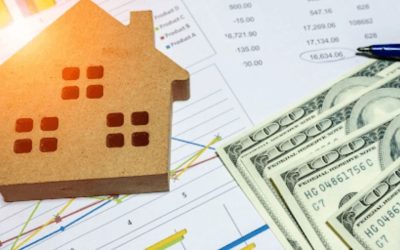Investing in a home isn’t just about having a roof over your head—it’s about shaping your financial future.
As you start saving for your first home, you’re not merely putting money aside for a down payment.
You’re taking the first steps on a journey toward building wealth, creating a solid investment portfolio, and laying the groundwork for potential passive income.
And it all starts with understanding the world of real estate investment.
Factor 1: Location, Location, Location
“Location, location, location”—it’s a phrase so important in real estate that they say it thrice.
According to Dave Masson Real Estate Group, the location of investment properties is crucial to their potential success.
A prime location in a desirable neighbourhood can dramatically increase the value of a home over time, regardless of other fluctuations in the housing market.
When evaluating a potential property, consider its proximity to amenities like schools, shops, and public transportation, as well as its accessibility to major roadways.
Additionally, look into future development plans for the area—things like planned commercial properties or improvements to infrastructure, can significantly boost property values.
Factor 2: Understanding Market Trends
Reading the ebb and flow of the housing market is key to a successful real estate investment.
Are home prices in your chosen area on an upward trend? Is the area attracting new businesses and residents, or are people moving away?
A thorough understanding of both current and predicted market trends can help you forecast the potential appreciation of your property over time.
Working with an experienced real estate group like Dave Masson can provide valuable insights into these trends.
Factor 3: Evaluating Property Condition
The condition of your potential investment property should never be overlooked.
While buying a fixer-upper might seem like a good way to get a deal, the costs of repairs and renovations can quickly add up, eating into your return on investments.
Before buying, hire a reputable inspector to give the property a thorough check.
This can help you avoid unforeseen issues and give you a better understanding of any additional costs you might be taking on.
Factor 4: Rental Income Potential
If you’re considering rental properties as an investment, it’s vital to understand the rental income they can generate.
How much can you reasonably expect to charge for monthly rent? Are the rental rates in your chosen area stable, or are they fluctuating?
Understanding the potential rental income from a property—and weighing that against your mortgage payment and other expenses—can help you determine whether the property will be a valuable addition to your investment portfolio.
Factor 5: Financing and Additional Costs
Investment properties, whether they’re residential or commercial properties, are not just about the sticker price.
There’s a variety of additional costs to consider. First, you’ll need to understand your mortgage loan options.
Different mortgage lenders offer different rates, so it’s important to shop around to get the best deal.
Beyond the mortgage payment, you’ll also need to factor in property taxes, insurance, and potential maintenance costs.
If you’re planning to rent out the property, consider the cost of hiring a property manager and the need to do a background check on potential tenants
Profitable Strategies for Home Investment
Investing in real estate is not a one-size-fits-all approach. There are several strategies you can employ to make your investment profitable. Here are a few examples:
- Buy and Hold: This is one of the most common strategies. You buy a property and hold onto it for several years, banking on the property value to appreciate over time. This works well in areas with strong, steady growth.
- Rental Properties: Buying a property to rent out can provide a steady stream of passive income. Your monthly rent can help cover your mortgage payments and even generate a profit.
- Flipping Properties: This involves buying a property, often in poor condition, and renovating it to sell for a profit. This requires a good understanding of renovation costs and the potential return on investments.
- Commercial Properties: Commercial properties often have higher returns than residential ones, but they also come with higher risks. Researching the commercial market thoroughly is crucial in this case.
- Real Estate Investment Trusts (REITs): If buying a physical property isn’t for you, investing in a REIT can be an alternative. It allows you to invest in real estate without owning a physical property.
These strategies highlight the different avenues for making your first home not just a place to live but a stepping stone to a more secure financial future.
The Final Stretch
Buying your first home as an investment is a significant milestone.
Each factor considered—location, market trends, property condition, rental income potential, and financing—brings you closer to achieving financial success.
Remember, this is more than a purchase. It’s the first step in a journey towards building wealth and securing your financial future.
Happy investing!



